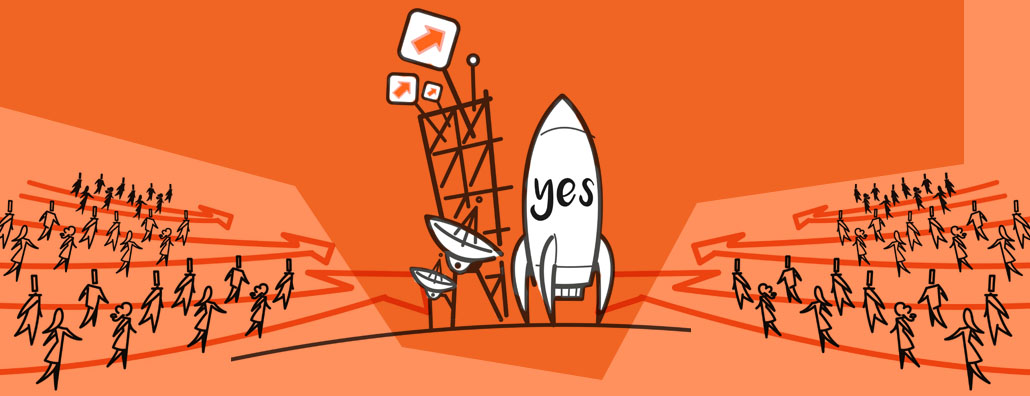In organizations, we often focus on metrics, market strategies, and process optimization. However, there is one factor that, though intangible, has a direct and profound impact on business performance: corporate culture. Far from being an abstract concept or a statement on the wall, culture is the engine that powers the business. In every cultural transformation project we facilitate at Madavi, we witness how a strong culture not only enhances employee satisfaction or employer branding but also becomes a decisive competitive advantage.
Why is cultural transformation so important?
Corporate culture is the set of values, beliefs, behaviors, and norms that guide how people interact with each other and with the world outside. It’s the organization’s personality — the way things are done “here.”
Cultural Transformation with Madavi
In the cultural transformation processes we facilitate:
- We ensure that the new culture becomes real by applying it to real business challenges.
- We align culture and business simultaneously, ensuring that change is both effective and scalable.
- We change culture through a challenge, making it tangible — a tool to generate results.
We engage people actively, allowing them to experience the benefits of the new culture in real time.
The ripple effect of cultural transformation. A true cultural transformation creates a ripple effect that translates directly into business results, including (among many others):
- Talent attraction and retention: A strong culture acts as a magnet for top talent and drastically reduces turnover, cutting recruitment and training costs.
- Higher engagement and productivity: When employees feel connected to the company’s mission and values, their commitment soars. They don’t work just for a paycheck, but for a purpose. This engagement translates into initiative, creativity, and ultimately, greater productivity.
- Innovation and adaptability: A culture built on trust and psychological safety encourages people to take smart risks, share ideas, and learn from mistakes. In an environment where there is no fear of failure, innovation flourishes — and the company becomes more agile in adapting to market changes.
- Reputation and brand strength:Culture is reflected in the quality of products and services and in how a company treats its customers. A culture focused on excellence and customer value builds a solid reputation and a trustworthy brand — driving loyalty and sustainable growth.
From theory to practice
At Madavi, we know that culture cannot be imposed — it must be co-created. It’s not a list of values hanging on a wall, but a set of behaviors lived every day. To transform an organization’s culture, we work on:
- Defining a clear purpose and future vision: Why does our company exist? What do we want to become? For what and for whom?
- Engaging the entire organization: Leaders are not the only drivers of cultural change; everyone must be involved. At Madavi, we do this through strengths and Appreciative Inquiry.
Appreciative Inquiry (AI) is a change approach focused on what already works well in an organization — not on what’s wrong. In a cultural transformation process, we propose a challenge and follow the four phases of AI: Discovery, Dream, Design, and Destiny.
In the Discovery phase, we conduct interviews and conversations to identify success moments, strengths, and values already present in the current culture. This generates positive energy and pride, laying the foundation for change. Instead of focusing on problems, we foster dialogue around what makes the organization a great and valuable place to work.
Then comes the Dream phase, where people at all levels imagine an ideal future for the company, based on its strengths. This collective and creative process allows everyone to co-create a shared vision of the desired culture. In the Design phase, concrete and feasible proposals are developed to bring that vision to life — applying it to real business challenges so that culture becomes a tool for generating results. Finally, the Destiny phase is all about implementation — with a focus on action and continuous learning.
And yes, the process is fast and scalable!
In short, We align culture and business simultaneously, ensuring that change is effective, tangible, and scalable. How? By transforming culture through a challenge — turning it into a practical tool to create results.
Discover some of our success stories in cultural transformation.


